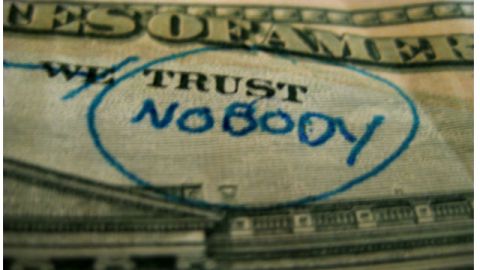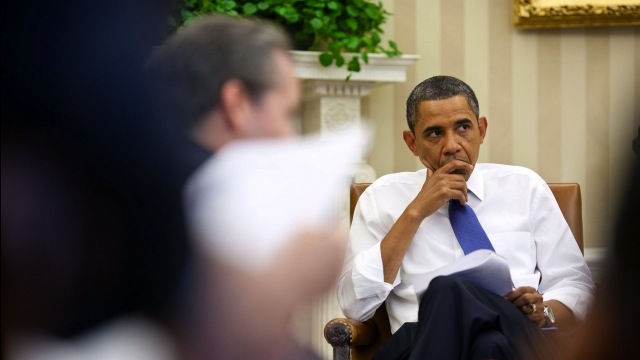Who Should You Trust on the Economy? Nobody, entirely.

What’s the Big Idea?
Each year, the world’s most powerful leaders meet at the World Economic Forum’s annual meeting in Davos, Switzerland to discuss how to remedy challenging and complex global issues. Yet this elite brain trust famously misread the writing on the wall prior to the financial crisis and recession that followed in 2008. And since the meltdown, the media have been vacillating between optimism and despair about the possibility of an economic recovery. Who should you trust? Nobody, entirely; even the experts’ judgment is easily clouded by the atmosphere around them.
In his interview with Big Think, Kevin Steinberg, the COO of the World Economic Forum USA, tells an illuminating story about an interactive workshop performed at Davos 2008, less than nine months before the financial bubble would ultimately burst.
Publicly the atmosphere was jovial and bullish, but privately a good majority of the money managers feared—correctly—a deep correction in the world’s economy. Why weren’t these fears addressed? Did the atmosphere of Davos prevent them from acknowledging the anxieties that most secretly harbored?
What’s the Significance?
“A lot of what we decide is influenced by what’s going on around us” explains Legg Mason Capital Management’s Chief Investment Strategist, Michael Mauboussin. He offers several compelling examples of how our decision-making is unconsciously affected by our environment.
It’s obvious enough that the myopia and volatility of the media powerfully influence investor confidence, day-to-day. And if simply writing down a phone number can alter one’s ability to make a simple estimate, could the insular, exclusive nature of the World Economic Forum be preventing the world’s leaders from acting in the best interests of society?





